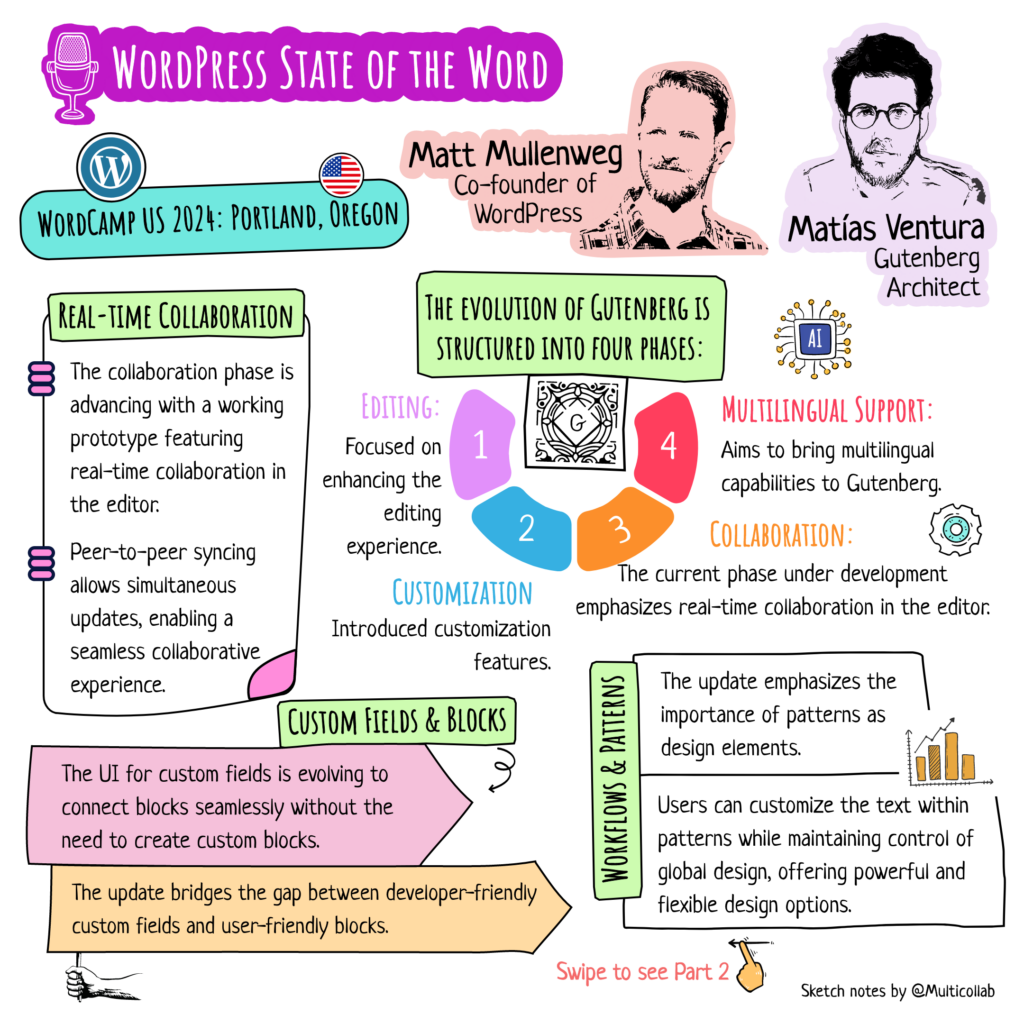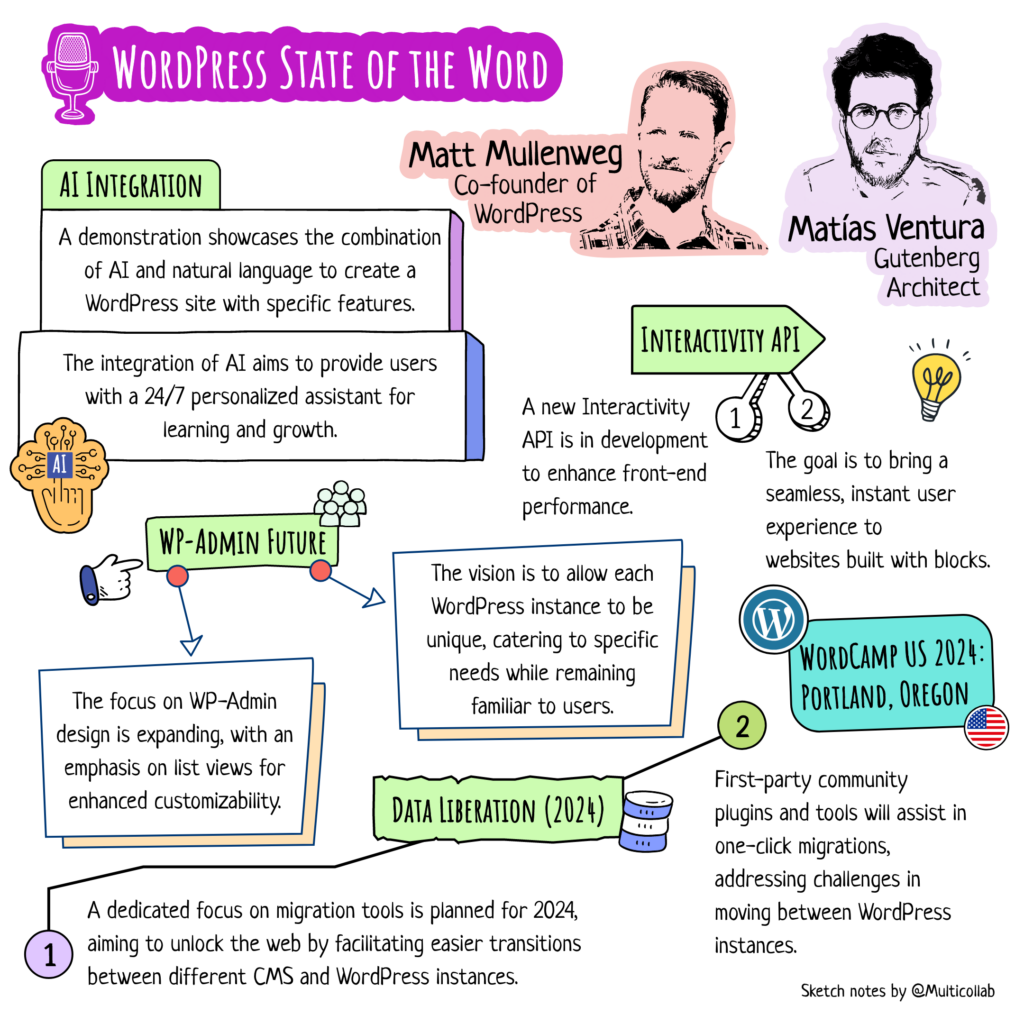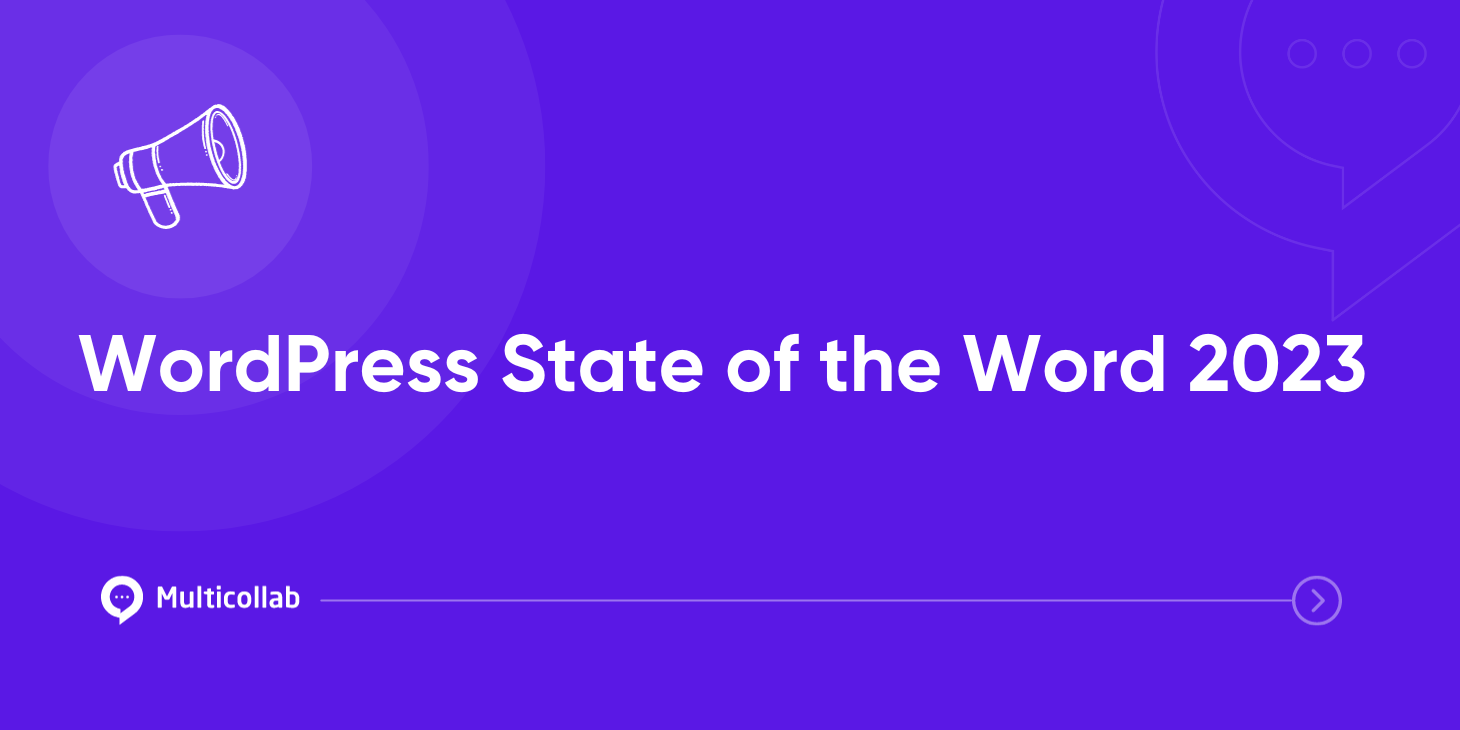Table of Contents
As the community eagerly tuned in to the WordPressState of the Word 2023, Matt Mullenweg (WordPress project’s co-founder) and Matías Ventura took the virtual stage to unveil the exciting evolution of the Gutenberg editor along with what the future holds for WordPress.
WordPress, the beloved content management system, turned 20 this year, and the global WordPress community had much to celebrate. A total of 70 WordCamps were held in 33 countries, thanks to the dedication of over 2,500 organizers, including 1,600 Meetup organizers and 800 WordCamp organizers.
Here’s a breakdown of the key revelations and groundbreaking features that promise to reshape the overall WordPress project with upcoming events of development.
Collaboration Update from WordPress State of Word Event
Matt Mullenweg then delved into the four phases of Gutenberg.
Editing Phase: The foundation, focused on enhancing the editing experience.
Customization Phase: Introduced powerful customization features.
Collaboration Phase: Currently under development, emphasizing real-time collaboration.
Multilingual Support Phase: Aim to bring multilingual capabilities to Gutenberg.
He then moved to emphasize the ongoing work on Phase Three: Collaboration. A working prototype of real-time collaboration in the editor was showcased at the State of the Word event, demonstrating peer-to-peer synchronization enabling simultaneous updates, ensuring a seamless collaborative experience for WordPress users.
Currently, in all of WordPress tech, Multicollab offers real-time editing capabilities for post authors.
Workflows & Patterns
The focus shifted to the Site Editor and the emphasis on patterns in design. The introduction of customizable patterns, allowing users to update content while retaining control over global design, was a highlight. The aim is to provide users with powerful tools to shape their websites uniquely.
Custom Fields & Blocks
A significant UI improvement was revealed for custom fields, enabling the connection of blocks to custom fields without the need to create custom blocks. This allows for intuitive interactions while bridging the gap between developer-friendly custom fields and user-friendly blocks.

Interactivity API
A new Interactivity API is in the works to enhance front-end performance, bringing instant transitions and responsiveness to WordPress websites, and offering a seamless, instant user experience to websites built with blocks.
WP-Admin Future
The focus on WP-Admin design is expanding, with particular attention given to list views for enhanced customizability. With a focus on list views, customization, and extensibility, the goal is to make WordPress adaptable to various use cases, ensuring a unique yet familiar experience for all users.
Other Significant Updates:
AI & WordPress: A fascinating experiment involving the combination of Playground and AI was showcased. The use of natural language to interact with Playground blueprints demonstrated the potential for more conversational interfaces within WordPress. The integration of AI aims to provide users with a 24/7 personalized assistant, fostering continuous learning and growth, and encouraging users to utilize and learn AI deeply.
Data Liberation: Looking ahead to 2024, a key focus area is Data Liberation. The WordPress team aims to unlock the web by dedicating efforts to migration tools, ensuring seamless transitions between different WordPress instances or even different content management systems. First-party community plugins and tools will streamline one-click migrations, addressing challenges in moving between WordPress instances.
Playground Project: One highlight of the year was the Playground project, a groundbreaking initiative that leverages WebAssembly (Wasm) to load PHP, a web server, and a database directly into your browser. This innovation allows users to store playgrounds in their browsers, retain data beyond page refreshes, and even access network functionalities for API interactions.
TwentyTwentyFour Theme: Another significant accomplishment of 2023 was the introduction of the TwentyTwentyFour theme. This versatile theme demonstrated through a short video, showcased the power of Gutenberg, allowing users to create portfolios, business sites, and more with ease.

The Annual keynote address delivered at WordPress State of Word of 2023 painted a promising picture of the platform’s future. From innovative projects like the Playground to advancements in collaboration, customization, and AI integration, WordPress continues to evolve to meet the diverse needs of its global community. The commitment to data liberation and migration tools further underscores WordPress’s dedication to empowering WordPress enthusiasts and fostering a vibrant, dynamic ecosystem.
Here’s the complete Annual Keynote address delivered by Matt Mullenweg at the event.
Update: WordPress Roadmap in 2024:
Slated for release in 2024, each of these releases brings a suite of enhancements and features to empower users and developers alike.
- WordPress 6.5: Expect faster loading times, built-in translations, and refinement of existing functionality.
- WordPress 6.6: This stabilization and polish release will focus on optimization, reliability, and continued security enhancements.
- WordPress 6.7: Anticipate enhanced collaboration tools and potential inclusion of features from the previous releases.







